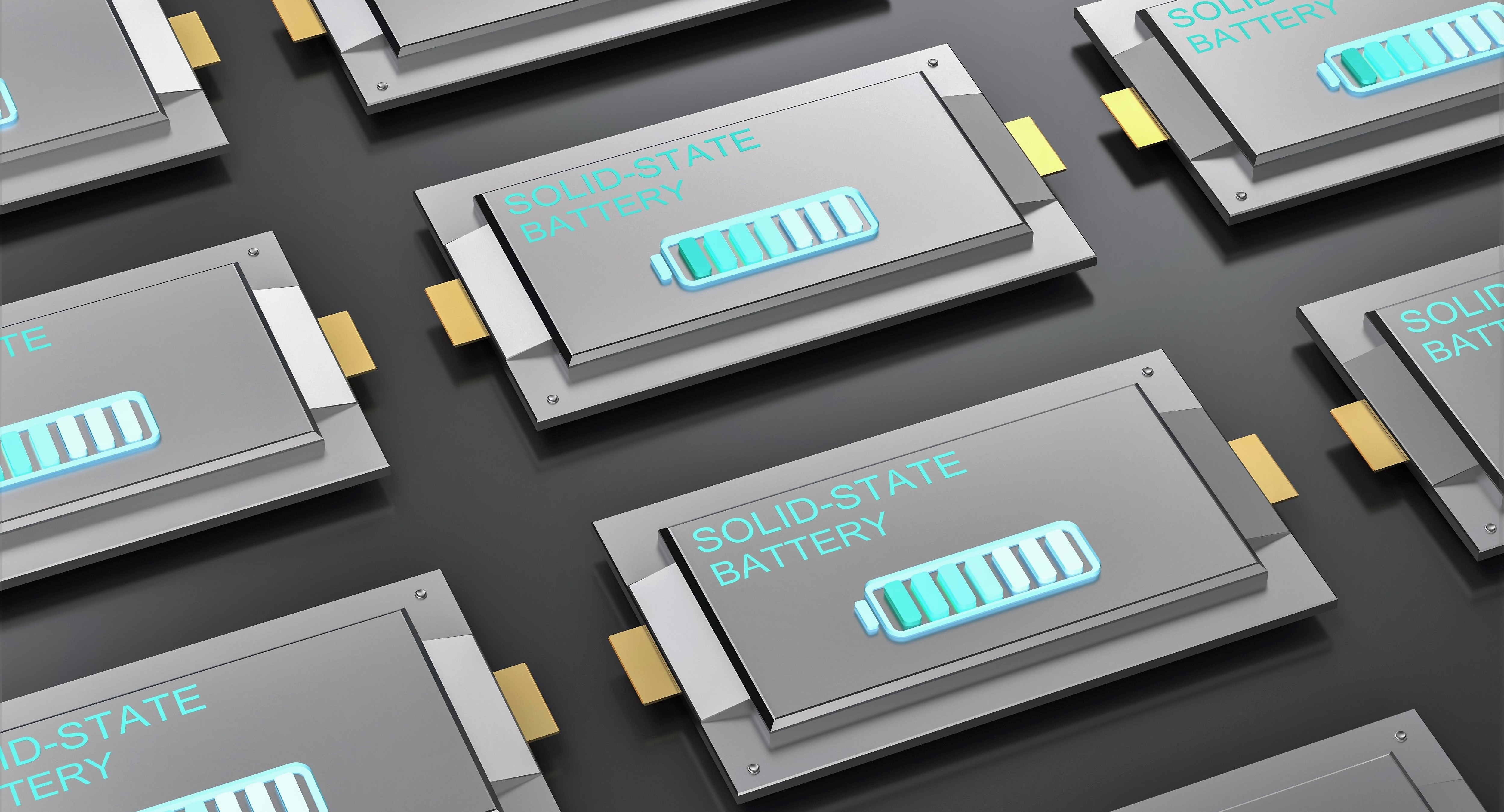A Reprocessible Solid Polymer Electrolyte (SPE) for All-Solid-State Lithium-Ion Batteries
KEY INFORMATION
Materials - Composites
TECHNOLOGY OVERVIEW
All-solid-state lithium-ion batteries (LiBs), also known as the most promising next-generation batteries, have attracted much attention due to their high energy density and safety. The replacement of liquid electrolyte with solid electrolyte could not only improve battery safety and also prolong its lifetime. The most commonly used solid polymer electrolytes (SPEs) are poly(ethylene oxide) (PEO) based, which typically have poor mechanical properties, low ionic conductivity, and a limited oxidation window, thus precluding their use with high-voltage cathodes. Therefore, it is essential to develop cross-linked SPEs with high oxidative stability for high-voltage all-solid-state LiBs in high energy applications.
The technology owner has developed a reprocessible cross-linked cationic polytriazolium (PT) based SPE for all-solid-state LiBs. This PT-based SPE is electrochemically stable at voltages >4.0 V, exhibiting a high ionic conductivity below the melting point as well as a high Li+ transference number. In addition to its electrochemical characteristics, this PT-based electrolyte is reprocessible and healable with good flexibility. Such polymeric electrolytes could sustain internal and external stresses during the charging-discharging process, thus prolonging the lifetime of Li-ion batteries while simultaneously tackling safety issues.
The technology owner is keen to collaborate with industrial partners such as battery developers and manufacturers for further co-development and test-bedding of solid polymer electrolytes and subsequent licensing of this technology for commercialisation.
TECHNOLOGY FEATURES & SPECIFICATIONS
The technology is a reprocessible cross-linked cationic polytriazolium (PT) based solid polymer electrolyte (SPE) that has the following features:
- Can be charged to a higher voltage (> 4.0 V), offering stability against high-voltage cathodes
- Higher energy as compared to commercial polyethylene oxide (PEO) based polymer electrolytes
- Ionic conductivity is 10-4 S cm-1 at 60 °C, higher than current solid polymer electrolytes (around 10-5 S cm-1 above the melting point > 150 °C)
- Li+ transference number is around 0.7, higher than current solid polymer electrolytes (around 0.4)
- Can be reprocessed by pressing at 180 °C
POTENTIAL APPLICATIONS
This solid polymer electrolyte can be applied to high voltage all-solid-state rechargeable lithium ion batteries, which have the following potential applications:
- Aerospace and aviation
- Medical devices
- Electric vehicles
- Grid energy storage
- Consumer electronics
- IoT devices
Unique Value Proposition
- Electrochemically stability at high voltage (4.2V)
- Higher ionic conductivity and Li transfer number
- Simple and efficient one-pot synthesis
- Reprocessible and healable
- Enable high-energy-density all-solid-state Li-ion batteries

